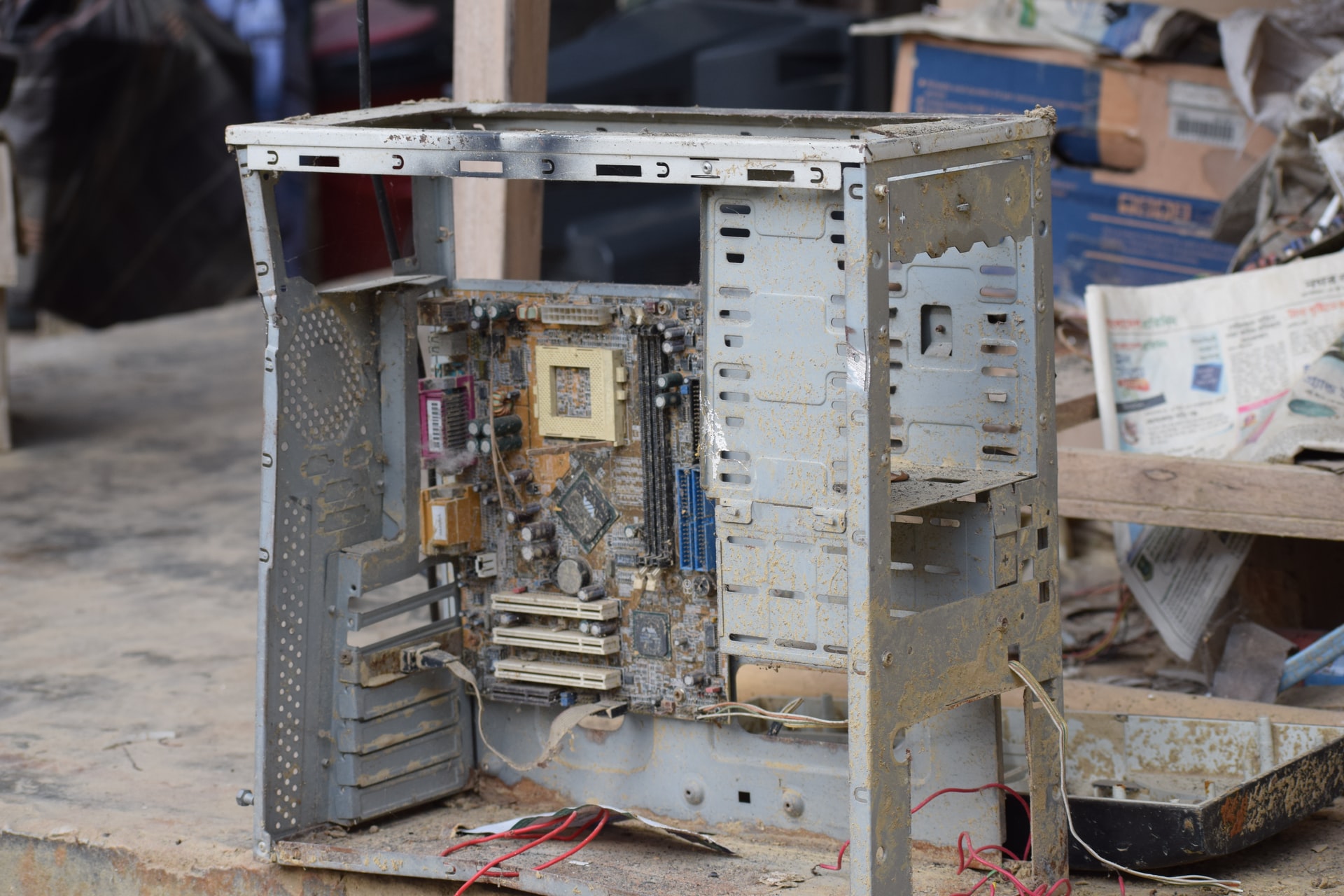
Each time we recycle our electronics, we trust that the electronics will go to a facility in our country where they will be recycled safely and ethically. But what happens when unscrupulous companies ship the waste offshore to become someone else’s problem? It’s difficult to admit our e-waste may be harming children and the planet.
Two very different scenarios:
A low-tech tragedy in Africa (42:24-49.42) https://www.youtube.com/watch?v=K04A1IbhZOU
A high-tech solution in New Zealand (9 min.) https://www.youtube.com/watch?v=4yGPm1U7U6s
Broken cell phone photo by Laura Rivera on Unsplash

This is a very thought provoking post. I wonder, who should take the brunt of the blame?
-Is it us as consumers for buying into advertising that is just sometimes a blatant lie? Albeit, I’m sure some companies are following through on their recycling programs, but do we, as consumers generally research which ones do?
-Is it the companies themselves for utilizing sales tactics that work on the ever growing “ethical shopper” consumer? Creating initiatives that may not actually have the person-power needed to truly run without oversight?
-Is it the government’s of various countries that may be more or less stringent when it comes to recycling programs?
I’m sure it’s a little bit of all of the above mixed with many other factors that play into global economic issues. Of course, the one area that we have the most control over is ourselves (the consumers) but it can be a challenge to even do this effectively. I must admit that I currently don’t spent too much time looking into the ethics of my mobile device before purchasing, but I have been spending more time doing so when purchasing clothing and household items. The process becomes quite arduous at times, as it is hard to know what to believe, and beyond that, to actually know which initiatives are actually effecting positive change.
I’d like to think that the following article is a good example of what I’ve just described:
https://goodonyou.eco/recycled-polyester-fast-fashion/=
However, I can’t be sure the full legitimacy of the article. In it’s favour, it does seem to be sourced with at least one or two academic papers, and many relevant links that psuedo-cite the text, but I didn’t find any information about the writer’s education or portfolio. The website “Good on You” does have a strong FAQ section that answers many questions, but the main source of income for the site still comes from the companies that “Good on You” reviews and promotes (this is disclosed to users).
I’d like to hope that websites like this live up to the ethical message that they promote, but it’s challenging to navigate this site and similar ones without questioning their validity. It begs the question, how far should we go as consumers if we truly want ethical products to be at the forefront of our buying options?
Hi Tamaka!
This is an interesting topic. We are so excited to receive the latest and greatest devices, we most likely forget where our old devices will end up. We are the society that keeps wanting more. This idea makes me wonder if there are more software upgrades that we could do to devices rather than the physical device itself. This would help reduce mobile device waste. Additionally, the solution in New Zealand seems like a interesting approach to this problem.
Hi Megan,
Yes, consumerism is a challenge. I am also part of the problem. I upgraded my phone to have a better camera. I still have my old phones in their boxes, as I don’t feel confident about where they will end up, when they are recycled. Reducing consumption is the best choice, although phones are designed for a limited life to increase sales. I believe a potential solution would be that the companies that create the products, be part of the recycling solution, or at least design the phones so that the toxic components can be removed safely and easily.
Hi Tamaka,
You raised two interesting subjects about digital device recycling and the dramatically different circumstances in developed countries and developing countries. I must say I am concerned about digital device recycling. Most digital devices use lithium batteries, such as laptops and cellphones. Even Tesla electrical cars are charged with lithium iron phosphate (LFP) chemistry. What that means in the next few decades, could be us facing a new challenge of how to recycle these giant batteries in large quantities. Sounds like a daunting task!
You bring up a good point about electric car batteries. An electric car battery can last to approximately 160,000 km in ideal conditions. Each year the battery will become less efficient at holding the charge so the distance until the next charge is needed will be shorter. Heat and charging at fast charging stations will also decrease the lifespan of the battery. https://www.carfax.com/blog/how-long-do-electric-car-batteries-last
Here is a link to a UBC Case study on Canada’s involvement in sending e-waste offshore. The story of Canada’s digital dumping ground. https://cases.open.ubc.ca/w17t2cons200-26/